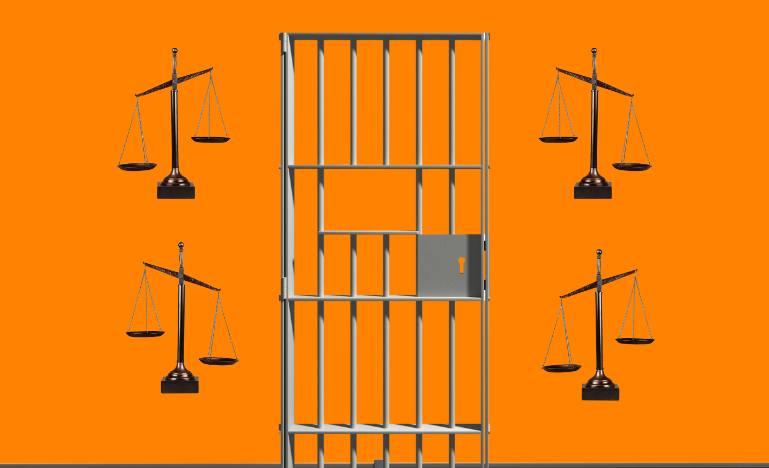Standard of proof
SCC to examine whether provinces can mandate that inmate discipline hearings operate on a balance of probabilities.

What standard of proof should disciplinary hearings in provincial jails rely on? The balance of probabilities or beyond a reasonable doubt? That's the question the Supreme Court of Canada will have to answer, having granted leave to the John Howard Society of Saskatchewan, which is challenging prison regulations in the province. Under those rules, imposed penalties can deprive inmates of their liberty, even though they can be found responsible for the offense on a much lower standard than a finding of criminal guilt.
Those penalties can involve the potential loss of earned remission, meaning they can lose credit for good behaviour. According to the John Howard Society of Saskatchewan, that contributes to lengthening an inmate's sentence. Or, inmates can be deprived of their liberty by being placed in the equivalent of solitary confinement.
Chris Sewrattan, a criminal defense and appeal lawyer in Toronto, says the Supreme Court of Canada likely agreed to hear the case because of the conflicting treatment of people in prisons.
"In the federal system, the onus is proof beyond a reasonable doubt, so there is fundamental unfairness based on the length of your sentence," Sewrattan says. "As a federation, the country ought not to allow those different standards, and I think that's why the Supreme Court is taking a look at it."
Thomas Hynes, a lawyer with Brian Pfefferle Law in Saskatoon, and the chair of the CBA's Saskatchewan criminal justice section, notes the case will be an opportunity to discuss the 1990 SCC ruling in R. v. Shubley, which explored the administrative nature of prison discipline cases.
"Shubley is talking about whether the section 11(d) Charter right to a fair trial should apply to a prison disciplinary process, and Shubley said no it shouldn't because the context is different as you are talking about prison administration and you don't need the fair trial right that you see in a criminal case," Hynes says. Subsequent cases have had to look into the significant penalties that can arise from prison discipline.
According to Hynes, Canada's Supreme Court must reconcile these decisions.
"On the one hand, you've said in Shubley that Section 11 of the Charter doesn't apply, but on the other hand, you've said some things that suggest that prison administrative decisions can be quite significant," Hynes says. The court has also discussed Section 7 of the Charter and highlighted that it stands as its independent rights section, not entirely overlapping with Section 11, which protects the liberty and security interests of those accused of crimes.
The question at hand is whether Section 7 should be interpreted to imply a "beyond a reasonable doubt" standard in prison administrative decisions because of the significant potential deprivations of liberty, even if Section 11 doesn't apply.
While the Saskatchewan Court of Appeal unanimously dismissed the John Howard Society's arguments, Hynes disagrees with how it read Section 7 in a prison context.
"Some of the prison disciplinary charges make you think, 'How could it not be a circumstance where you think it would not be proven beyond a reasonable doubt?'" Hynes asks. Suppose a prison disciplinary charge is related to possessing contraband in a cell, like a weapon or a shank, he says. If the prison policy holds the inmate accountable for everything in his cell, there is the potential to penalize multiple individuals for an incident where there may be some doubt.
"Is it fair to say that everyone in the jail cell knows everything happening in it?" Hynes asks. "Should someone be facing the risk of deprivation of their liberty?"
Hynes says the question of which standard applies touches upon Charter rights that affect people who have already been deprived of their liberty.
"The law on this is not clear, so the Saskatchewan Court of Appeal went with what they could, but they can't override the Supreme Court, or interpret what the Supreme Court wants to do," Sewrattan says. It's why he believes the court took the case on... "so that they can finally speak to when Section 11 is absent, what is the role of Section 7."
Sewrattan thinks the court will provide some measure of protection to inmates.
"First, because it is fundamentally unfair that some detainees have the onus of beyond a reasonable doubt, and others do not," Sewrattan says. Also, over the last decade, the Supreme Court has discussed circumstances where "liberty may be unjustifiably denied."
For example, Sewrattan points to their willingness to deal with aspects of the bail system and not-criminally responsible persons, which he terms an "obscure area of law."
"There is no bigger black hole in the criminal law than the prison system," Sewrattan says. "The processes are relatively unknown to lawyers; the decisions are much less frequently appealed, so it's right up the Supreme Court's alley to shine a light on this.
The broader question the court must grapple with is what sort of process society feels is fair while recognizing that, as per Shubley, provincial jails sometimes have thousands of administrative charges in a year.
"How do you balance the efficiency of the system with people's rights," Hynes asks.
Senator Kim Pate, a former executive director of the Canadian Association of Elizabeth Fry Societies, says that the challenge by the John Howard Society could have ripple effects.
"The obvious question that leaps to mind is how many other provinces or territories have similar regulations that also need to be challenged," Pate says. "My hope would be that folks, particularly lawyers doing work in this area, are looking at those and potentially building on this."


